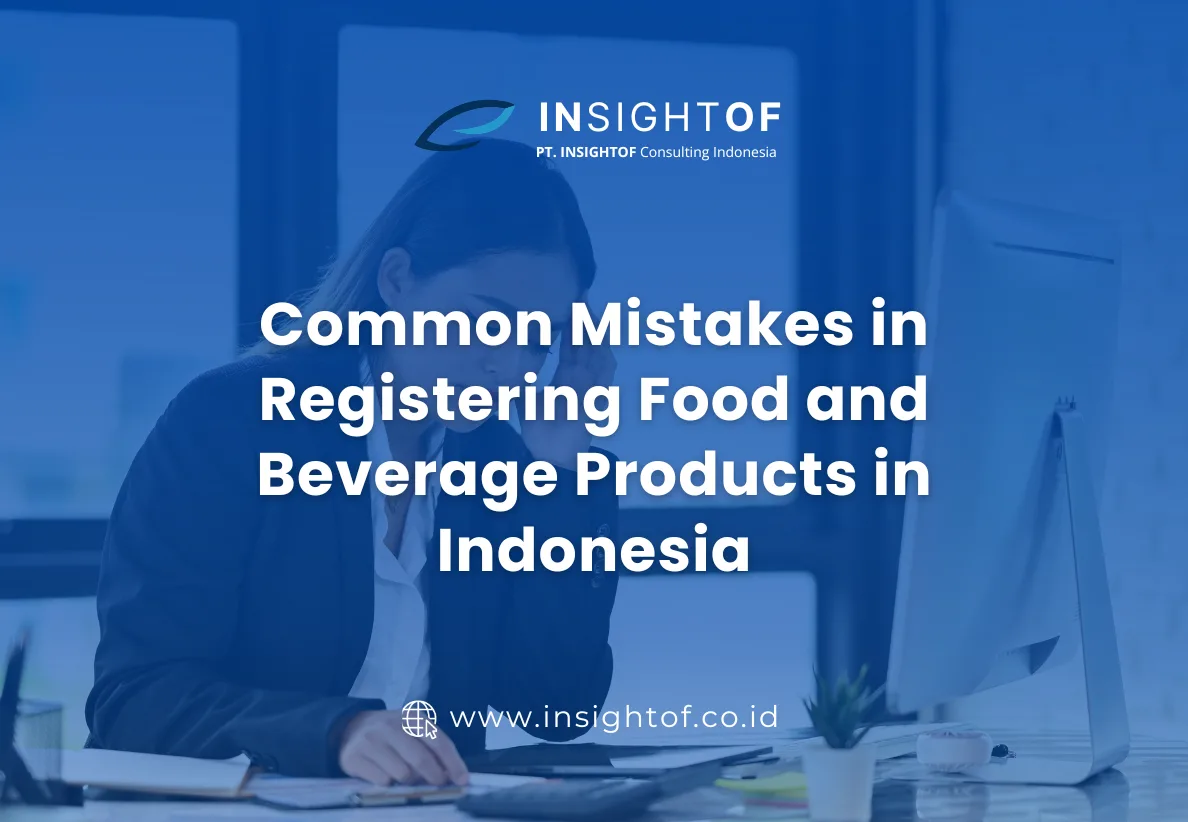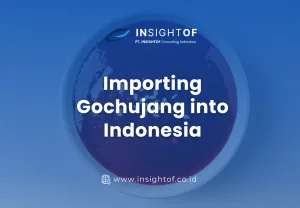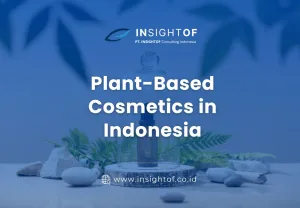The Importance of BPOM Product Registration
All processed food and beverage products distributed in Indonesia are required to have marketing authorization (izin edar) from BPOM (Indonesia’s National Agency of Drug and Food Control). This license ensures that the product is safe and meets quality standards for consumers .
For businesses, having a BPOM-issued marketing authorization number (NIE) proves that the product has passed evaluation and complies with local regulations—helping build consumer trust. On the other hand, distributing products without authorization can lead to serious consequences: products may be withdrawn, businesses may face administrative fines, or even criminal sanctions.
That’s why proper registration is essential before launching any product into the Indonesian market.
Common Mistakes During Product Registration
Here are the most frequent mistakes made during BPOM registration, along with explanations:

Incomplete or incorrect documentation
Many businesses forget to attach required documents (e.g., NPWP/tax ID, business license/NIB, business certificate, CPOTB or SPP-IRT certificate, facility audit results, etc.) or fill in forms incorrectly. BPOM requires both administrative and technical documents to be complete. Incomplete or incorrectly filled forms cause delays, as BPOM will request corrections—slowing down the entire process.

Inaccurate product data
Errors in the product name, brand, ingredients, or nutritional information (e.g., calories, fat, sugar content) often occur. For example, the net weight on the label might not match the one in the registration form. Inconsistencies like this lead BPOM to judge the data as unreliable, possibly resulting in rejection of the registration.

Packaging Label Errors
Labels must include essential information such as product name, brand, list of ingredients, net weight or volume, production and expiration dates, production code, and authorization number (NIE or PIRT if applicable). All information must be written in Indonesian and match the design submitted during registration. Many businesses fail to realize that using a different design or foreign language (e.g., not including “under BPOM supervision” for P-IRT products) is a violation. If BPOM finds discrepancies in the label, they can revoke the marketing authorization.
Other Common Mistakes During Product Registration:
- Overstated benefit claims: Claims like “cures disease” or “boosts immunity” without solid scientific backing are considered misleading and are prohibited. BPOM does not allow exaggerated or unverified claims . Products making overclaims risk rejection and businesses may face legal consequences .
- Failure to meet production standards (CPB/GMP): BPOM also assesses production facilities. Those that fail to follow Good Manufacturing Practices (CPB/GMP)—e.g., poor hygiene or lack of quality control—are considered unsafe. If BPOM finds violations, the product’s registration can be denied and the product may be recalled .
- Delayed response to information requests: After submission, BPOM may ask for clarification or additional documents. If businesses respond slowly or cannot be reached, the evaluation process stalls. Poor communication between applicants and BPOM can result in long delays .
- Using the term “halal” without a halal certificate: In Indonesia, products claiming to be halal must be backed by official certification from the MUI (Indonesia’s Council of Ulama) in accordance with the Halal Product Assurance Law (Law No. 33/2014) . Many exporters or manufacturers are unaware of this. Using halal claims or logos without valid certification is a major violation. This can lead to administrative penalties—including fines up to billions of rupiah—under Government Regulation No. 39/2021.
Consequences of Registration Errors
All of the above errors can have serious consequences: delayed or rejected applications, resulting in products being unable to enter the market . If errors are found after the authorization is issued, BPOM has the right to revoke the license . Additionally, the product can be pulled from circulation if found unsafe . Businesses may also face legal sanctions, including administrative fines or criminal penalties (under the Halal Law, fines can reach up to IDR 2 billion) . In short, even minor administrative or technical errors can cause significant financial and reputational damage.
Practical Tips to Avoid Mistakes
Here are practical steps to help businesses avoid errors in BPOM registration:
- Understand the Regulations: Review BPOM rules (e.g., Regulation No. 27/2017) and prepare all required documents like NPWP, NIB, certificates, lab results, and label designs.
- Ensure Accuracy and Completeness: Double-check that all documents are valid and consistent. Pay attention to details in the e-Registration forms to avoid errors.
- Verify Product Data: Make sure the product name, composition, and claims match lab results and packaging. Use accurate, standardized data.
- Use Accredited Labs: Only submit test results from KAN-accredited labs to ensure they’re accepted.
- Follow Labeling Standards: Design labels that comply with BPOM requirements—use Indonesian, include all mandatory info, and avoid unapproved health claims.
- Maintain CPB/GMP Compliance: Ensure your facility meets hygiene and production standards to speed up evaluation.
- Secure Halal Certification (if applicable): If claiming your product is halal, obtain MUI certification in advance to comply with Law No. 33/2014.
- Respond Promptly: Monitor your application and reply quickly to any BPOM requests to avoid unnecessary delays.
By following these practices, businesses—whether exporters or local producers—can minimize mistakes during food and beverage product registration. As a result, marketing authorization is granted faster, and your products can reach Indonesian consumers without delay.








